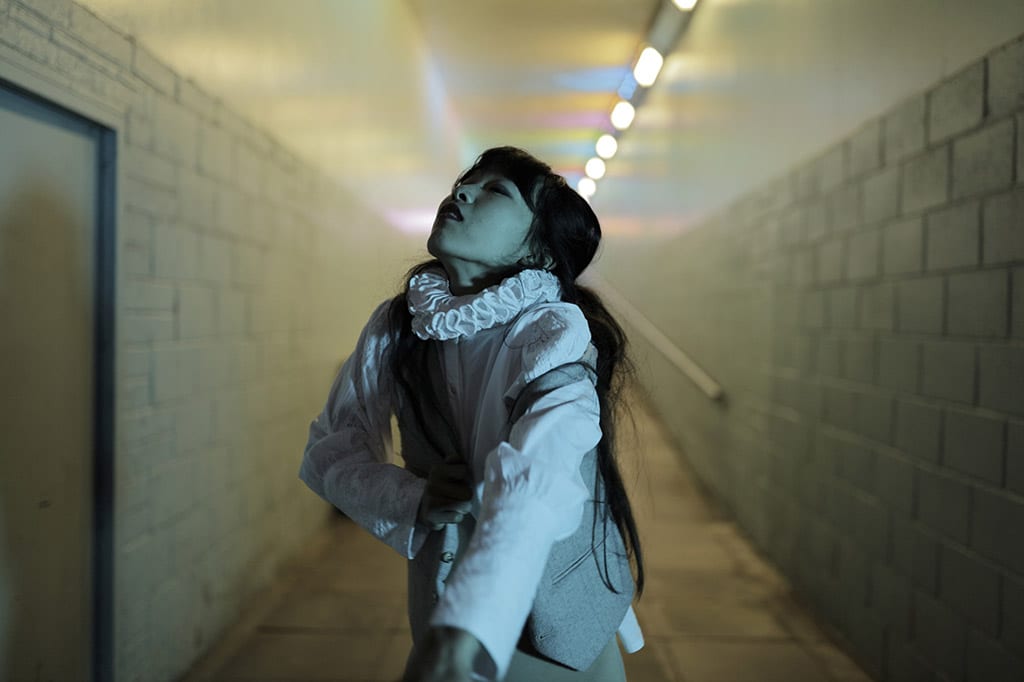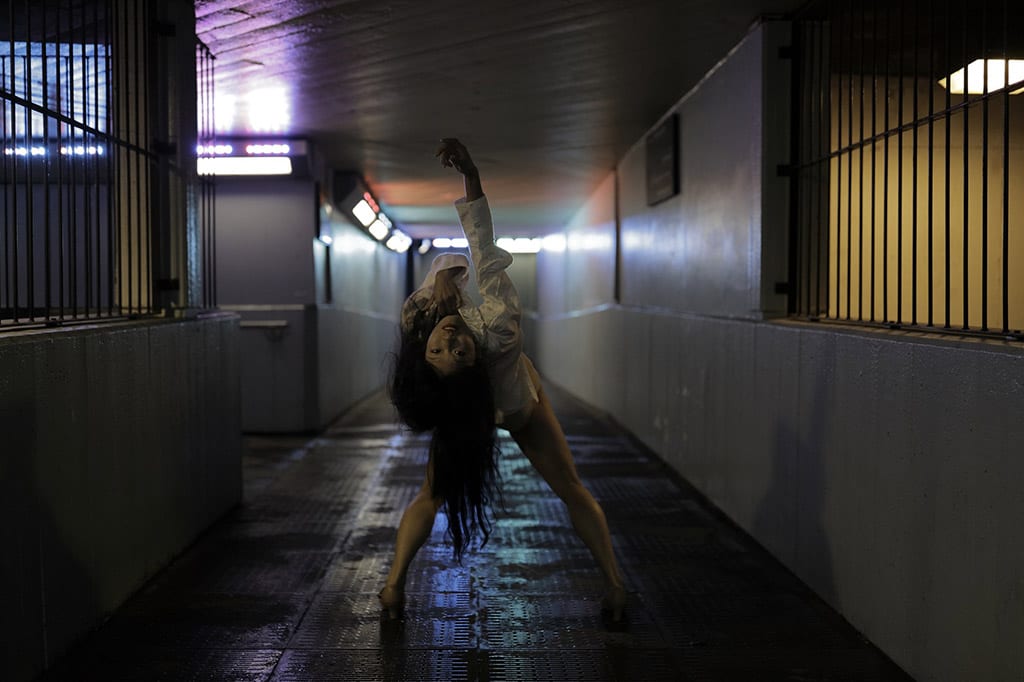Wth this new production, James Cousins pares down Shakespeare’s comedy As You Like it to its gender-shifting heroin, the titular Rosalind, who disguises as a man to escape her enemies, and her lover Orlando.
The performance unfolds in short dramatic sequences that portray the heroine’s progressive metamorphosis and coming into her own self. Rosalind first appears on stage, sparsely covered in a flesh-coloured corset and shorts. She is ‘a woman as you like it’, in the poetry of Sabrina Mahfouz, who voices Rosalind’s reflections on her status. When, putting on a velvet jacket, she turns into a man, her movements take on the bravado and strength she feels deprived of as a woman.
The four-strong cast embody Rosalind’s fluid identity and sexuality, each of them personifying a different facet of the heroine’s oscillations between the feminine and the masculine in a succession of mirroring duets. We see Rosalind dancing with Orlando (Georges Hann) as a woman (Chihiro Kawasaki), then as a man (Inho Cho), and even dancing with another woman (Heejung Kim).
At the centre of the stage, a white cube-shaped structure has replaced the forest of Arden. The performers dance or fight their way in and out of this space, where Rosalind finds herself alternately vulnerable and sheltered. In a sensual undressing sequence, we see her sliding down from her female partner’s shoulder, taking off layer after layer of clothing to the sound of Ella Fitzgerald’s warm octaves. The process is repeated until both women remain in their corsets, at the centre of the cube. Outside, the men, dressed in grey suits, crouch on the ground, which they beat in unison with their hands. The circulation between the inside and the outside of the cube seems to imply a separation between the men’s and the women’s world, which Rosalind perpetually eschews.
By blurring her identity, Rosalind achieves emancipation, and bestows it upon her lover, whose movements gradually become suppler, as he comes to accept and respond to the heroine’s dual personality.
Watching Rosalind, we seem invited to read as well as to experience what we are seeing. To me, this tones down the sensuality of the performance. I am impressed by the virtuosity of the dancers, but feel excluded from their symbiotic union, as if I, too, had been left outside the cube. This gives me space to contemplate and admire Rosalind’s evolution as she stands, assertive, and free.


